Issue 142 : 19 November 2023
Talofa Lava, Kia Orana, Malo E Leilei, Tena Koutou, Hello ...
... and welcome to the latest issue of “For The Love Of The Game”, the official e-zine of the New Zealand Amateur Sport Association Inc., founded in Wellington, New Zealand in 2017.
If you have any feedback on this issue, ideas for future articles, or would like to contact the Editor, please click here. And, you are invited to forward the e-zine to others you know, who may be interested in reading it. An archive of earlier editions of the e-zine can be found here.
For those who follow Twitter, you can also follow the Association, @AmateurSportNZ. If you are interested in applying for membership of the Association, please click here.
NSCS Workshops In Invercargill & Wellington ...
In the past week, the 2023 National Sport Club Survey (NSCS) Project Team visited Invercargill (hosted by Active Southland) and Wellington (hosted by Nuku Ora, formerly known as Sport Wellington), presenting insights on the 2023 survey based on the survey’s six-year longitudinal data, as well as focusing on the four survey themes for this year: casualisation; club/school engagement; disability; and integrity. Next week the Project Team will be presenting a workshop in Auckland (hosted by Harbour Sport), on Thursday, 23 November.
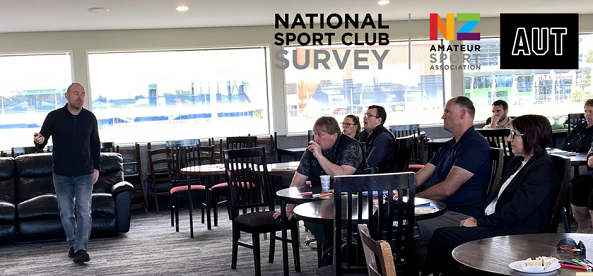
(Dr. Michael Naylor presents NSCS findings in Invercargill last week)
Among the longitudinal findings of the survey, the proportion of females and those aged under 30 involved in club governance is largely unchanged from the prior year, (at 48% and 8% respectively). Similarly, the percentage of club chairpersons who’ve served in that role for five or more years (26%) is largely unchanged over the past three surveys, with cricket, netball and tennis reporting 40% or more of clubs in their respective codes having chairpersons with a tenure of five or more years. Visit www.nscs.org.nz for more survey information.
U.S. Survey Shows Children Are Playing Team Sports Less Often ...
Children are playing team sports less regularly according to the “State Of Play 2023” survey undertaken by the Aspen Institute in the United States. According to the survey, this trend started before the pandemic, which may have accelerated the change even more.

Core team sports participation (meaning sports played on a regular basis) for youth aged 6 years to 17 years declined 6% between 2019 and 2022. That translates to 1.2 million fewer young people regularly playing team sports, according to data from the United States’ Sports & Fitness Industry Association, (SFIA).
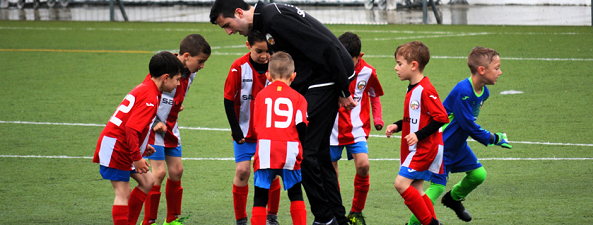
Total team sports participation (meaning playing at least once in the past year) stayed flat. In other words, children are trying sports about as much as they did before COVID-19. They’re just not playing as frequently. You can read more about the survey, here.
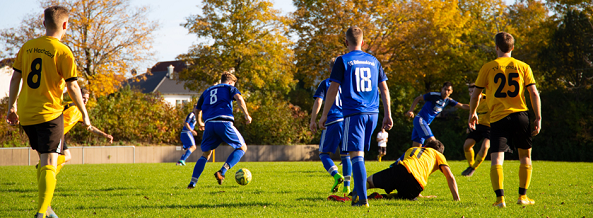
Association Meets With Local Government New Zealand ...
Last week, the Association met with Local Government New Zealand as a first step toward engaging in an ongoing discussion on how relationships between local authorities and community sport clubs can be enhanced, to ensure that ratepayer owned facilities continue to be affordable and accessible to volunteer-led not-for-profit sport organisations.
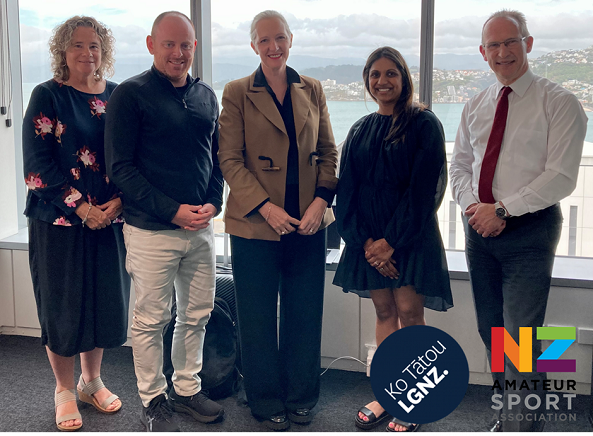
(Ranjani Ponnuchetty from LGNZ, second from right, with Association Board members)
In 2022, the National Sport Club Survey revealed that some community sport codes (e.g. lawn bowls) reported greater positive engagement and effective communication with their local authorities, compared to other sporting codes (e.g. rugby union). Rural clubs reported slightly better engagement and communication with local authorities, compared to the relationship urban clubs reported to have with their councils.
“Time Is Of The Essence” For ICSOs ...
There’s only 28 months for incorporated community sport organisations (ICSOs) to re-register under the Incorporated Societies Act 2022, or otherwise face involuntary dissolution at the dispassionate hand of the Registrar of Incorporated Societies. For all ICSOs, the most important thing to do right now is to engage with their members, to inform them of what’s changed and what’s required to be done to comply.

(28 months may actually be as few as 9 months given seasonal community sport)
Given the work required to re-register under the new Act, time is of the essence. The Association again warns Government that community sport is facing an “extinction event” unless the law (as currently enacted) is modified to meet the capabilities of volunteer-led community sport organisations. You can read more here.
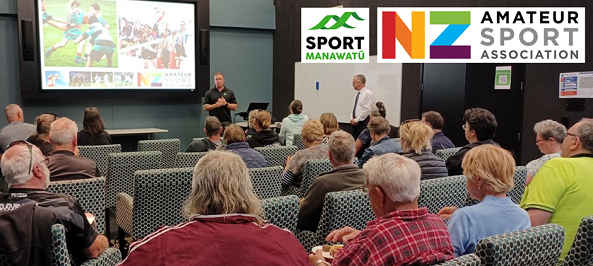
(The Association recently presented IS Act seminars in Manawatu and Horowhenua)
Trans-Tasman Head Injury Research Updates ...
The Royal College of Pathologists of Australasia (RCPA) has released a new position statement, acknowledging the causal link between exposure to repeated traumatic brain injuries and the development of chronic traumatic encephalopathy (CTE).
The RCPA is calling on sport governing bodies to take action on CTE through five action points, which includes a recommendation that low or no contact versions of sports are played by those under the age of 14. You can read more here.

(The RCPA recommends that under 14-year-olds play low or no contact sports)
Meanwhile, the New Zealand Rugby Union Inc. has released the results of the Otago Community Head Impact Detection study (ORCHID), a joint project between World Rugby, New Zealand Rugby, Otago Rugby, the University of Otago and Prevent Biometrics.
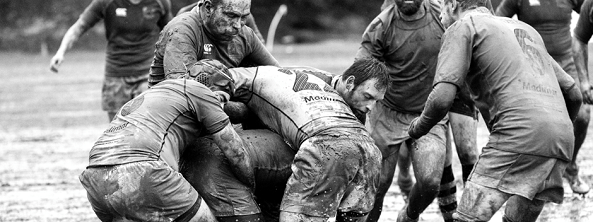
(New Zealand Rugby says under 13 age players are at lowest risk of head injury)
This study has found that proportionally, younger players experience higher weekly incidence rates of “head acceleration event” (or HAE) exposure during training. Overall, under 19 players had 1.36 times the risk of high-magnitude (> 30 g) events during matches, while under 13 players had the lowest risk compared with all other grades. Tackles and rucks accounted for the largest HAE burden during matches, with "forwards" having 1.67 times the risk of > 30 g HAEs in rucks, compared with "backs". You can read more here.
Empowering Parents With Knowledge Of A Safe Sport Club ...
The U.K.’s Child Protection in Sport Unit (CPSU) was founded in 2001 to help ensure all children and young people are safe while participating in sport at all levels. It suggests that parents can use the following checklist to determine if a sport club has appropriate frameworks in place to provide a safe environment for young people.

(The CPSU has a check-list for parents enrolling their children in community sport)
Specifically, it recommends that before enrolling a child at a sport club, parents should determine if the club: is accredited to a governing body; has a welfare or safeguarding officer; has effective consent and emergency contact processes; has appropriate policies and procedures for dealing with parental concerns; has safe recruitment processes for all personnel (including volunteers); requires all personnel (including volunteers) to undertake safeguarding training; and ensures that young people are suitably supervised by adults, based on the young person’s age, ability, the activity and venue. You can read more, here.
From The Archives ...
TOWN AND COUNTRY
LYTTELTON TIMES, VOLUME XCV, ISSUE 10859, 20 JANUARY 1896, PAGE 4
Ladies’ Swimming Race
"The lady members of the Richmond Amateur Swimming Club held a 50 yards scratch race in the bath on Saturday morning. There were four starters, Misses Lily Bassett, Beatrice and Flossie Whitcombe and Ethel Eayrs.
Miss Bassett won easily by about twelve yards. Miss B. Whitcombe being second and Miss F. Whitcombe third. The time was 65 sec. The club has now a membership of seventy ladies and has included two ladies’ races on the programme of the annual sports to be held in February."
Prudens (Prudence) Lillian Burrows Bassett (known as “Lily”) was born on 18 April 1883, the daughter of Thomas (a successful Christchurch merchant) and Mary Jane (Minnie) (nee Burrowes) Bassett, the second eldest of their five children. The family lived in 16 room, two story house (named “Woodcote”) located on 26 acres in Hornby, Christchurch.
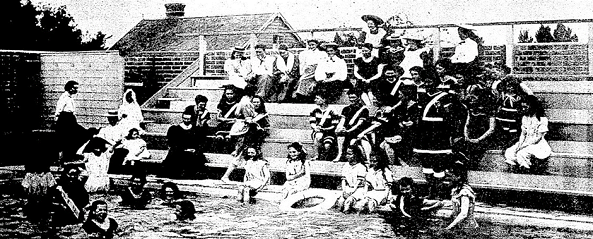
(The lady members of the Richmond Amateur Swimming Club in 1900)
As a teenager, Lily swam for the Richmond Amateur Swimming Club, which in 1896 boasted 70 female members. She attended Canterbury College, studying music with her older sister Violet, passing her Trinity College examinations in instrumental and vocal music in 1898.
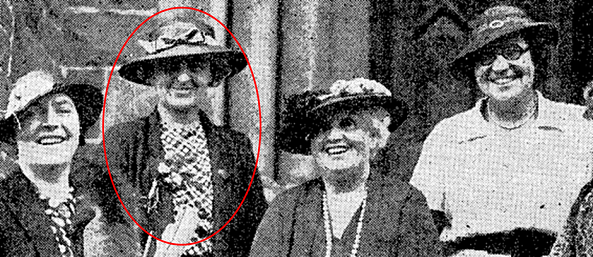
(Prudens “Lily” Blunden, circled, contributed to community sport “off-field”)
Lily married Bernard Lionel Blunden (fourth son of Reginald and Alice Blunden) a north Canterbury (Hurnui) sheep-famer in 1908, with whom she raised two children, Rex (born in 1909) and Elizabeth (born in 1913). While not an “on-field” sporting champion in her own right, in her adult life Lily actively contributed to the governance and social structures which supported community sport in the Hurunui district in North Canterbury.
A keen sportswoman, Lily was Patroness of the Hawarden Golf Club Inc., a Life Member of the Waikari Tennis Club Inc. (where she for many years was honorary secretary), and a Vice-President of the Waikari Basketball (Netball) Club.
Active in supporting her community, Lily was also instrumental in starting the Waikari sub-centre of the Red Cross in 1914. During the influenza epidemic after WW1, she helped as a nurse. She formed the Waikari Country Women’s Institute in 1931 and was its first president. Prominent in the Plunket Society, she was patroness of the Hurunui branch. Given her community involvement, in 1963, at 80 years of age, Lily was made a Member of the British Empire (MBE) for social welfare services, in New Zealand’s Queen's Birthday Honours.
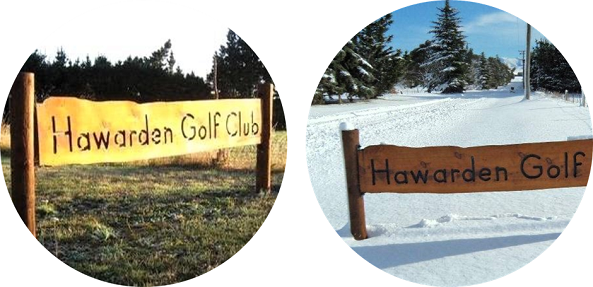
Prudens Blunden died on 16 December 1966 at her home “Carvossa” in the Waikari-Scargill Valley, at the age of 83 and she is buried alongside her husband in the Waikari Cemetery. Following her death, the Hawarden Ladies’ Golf Club purchased a sliver Memorial Salver to be competed for annually in her honour.
The Final Word ...
"Don't ever question the value of volunteers: Noah's Ark was built by volunteers; the Titanic was built by professionals."